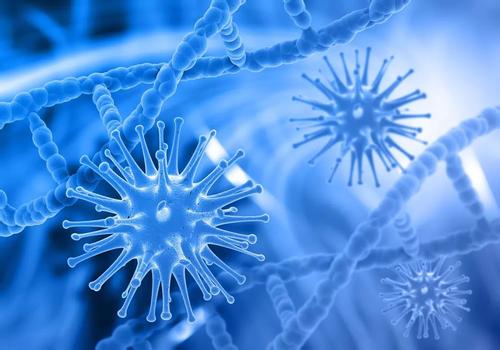Anyway, getting sick is a sensible response to infection. Sick people retire to their beds and thus are less of a threat to the wider community.
生病正是對感染的一種能感覺到的反應。病人躺在病床上,因此減少了對更多人的威脅。
Because there are so many things out there with the potential to hurt you, your body holds lots of different varieties of defensive white cells—some ten million types in all, each designed to identify and destroy a particular sort of invader. It would be impossibly inefficient to maintain ten million separate standing armies, so each variety of white cell keeps only a few scouts on active duty. When an infectious agent—what's known as an antigen—invades, relevant scouts identify the attacker and put out a call for reinforcements of the right type. While your body is manufacturing these forces, you are likely to feel wretched. The onset of recovery begins when the troops finally swing into action.
由于外界有許多東西可能會傷害你,因此你的身體擁有大量各種各樣的白細胞——總共大約有1000萬種之多,每一種的職責分別識別和消滅某種特定的入侵者。要同時維持1000萬支不同的常備軍,那是不可能的,也是無效率的,因此每種白細胞只留下幾名哨兵在服現役。一旦哪個傳染介體——即所謂的抗原——前來侵犯,有關的哨兵認出了入侵者,便向自己的援軍發出請求。當你的身體制造那種部隊的時候,你就可能會覺得很不舒服。而當那支部隊終于投入戰斗的時候,康復就開始了。

White cells are merciless and will hunt down and kill every last pathogen they can find. To avoid extinction, attackers have evolved two elemental strategies. Either they strike quickly and move on to a new host, as with common infectious illnesses like flu, or they disguise themselves so that the white cells fail to spot them, as with HIV, the virus responsible for AIDS, which can sit harmlessly and unnoticed in the nuclei of cells for years before springing into action.
白細胞是毫不留情的,會追擊每個被發現的病原菌,直到把它們最后消滅。為了避免覆滅的命運,進攻者已經具有兩種基本的策略。它們要么快速進攻,然后轉移到一個新的寄主,就像感冒這樣的常見的傳染病發地樣;要么喬裝打扮,使白細胞無法識別自己,就像導致艾滋病的人體免疫缺陷病毒那樣。那種病毒可以在細胞核里無害地停留幾年而不被發覺,然后突然之間投入行動。
來源:可可英語 http://www.ccdyzl.cn/Article/201808/563389.shtml











